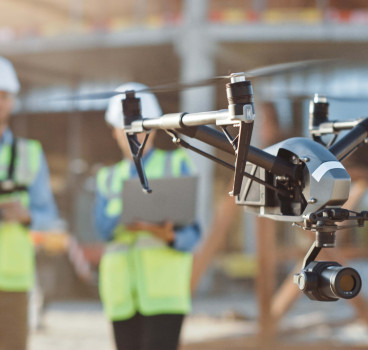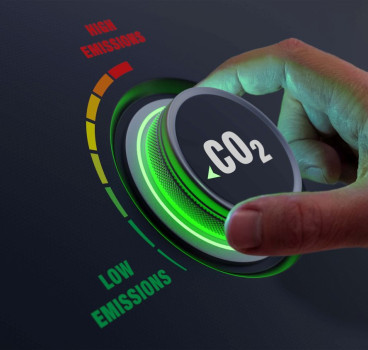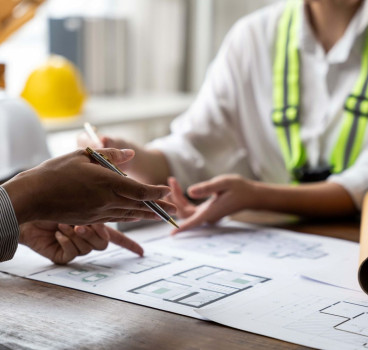Is this how construction is seen in popular culture?
The construction industry, often overlooked in the realm of popular culture, has played a surprisingly significant role in shaping our collective imagination. From the gritty realism of documentaries to the fantastical worlds of science fiction, construction has been depicted in a variety of ways, reflecting changing attitudes, technological advancements and cultural trends – but is this really a good thing?
The construction industry has often been romanticised in popular culture, portrayed as a noble and essential profession. Movies and television shows frequently depict construction workers as rugged, hardworking individuals, skilled craftsmen, overcoming challenges and building impressive structures. This portrayal reinforces the idea that construction is a vital and admirable occupation.
However, this media image can be misleading, as you can see from these outrageous AI generated images. As Talk.Build readers know, the reality of the construction industry is often far more complex than what is depicted on screen. Construction workers face long hours, physically demanding tasks and significant safety risks. The glamorous portrayal of the industry can obscure the harsh realities of the profession.
While all of this can inspire individuals to pursue careers in the construction, it is essential to acknowledge the challenges and sacrifices involved. We believe would be better to present a more realistic portrayal of the industry, to ensure that those considering a career in construction are fully informed and prepared for the realities of the job.
It is also important to recognise that the romanticisation of construction can have unintended consequences. By portraying construction workers as rugged and unsophisticated, popular culture can perpetuate stereotypes and reinforce negative perceptions of the industry, which can hinder efforts to attract a diverse and talented workforce.
Construction as a symbol of progress
Construction, of course, has long been and rightly associated with progress and development. The building of new structures, from towering skyscrapers to sprawling infrastructure projects, often symbolises a nation's ambition, economic growth and technological advancement. In popular culture, the construction of such projects is frequently portrayed as a positive force for change.
However, the portrayal of construction as such a symbol of progress can be problematic. Large-scale construction projects can have significant environmental and social impacts that are often overlooked in media depictions. The destruction of natural habitats, displacement of communities and consumption of resources are just some of the negative consequences that can result from construction projects.
While our industry can and does contribute to economic growth and create jobs, it is essential to consider the long-term costs and benefits. The environmental impact of construction projects, such as deforestation, pollution and resource depletion, must be carefully evaluated. Additionally, the social impacts, including displacement of communities and disruption of local ecosystems, must be considered.
Construction in dystopian narratives
Similarly, dystopian narratives, often depicted as bleak and oppressive societies, have frequently utilised construction as a symbol of destruction and oppression. In these fictional worlds, the building of towering skyscrapers or sprawling industrial complexes can represent the exploitation of workers, the degradation of the environment and the erosion of individual freedoms.
These dystopian portrayals serve as a cautionary tale, highlighting the potential negative consequences of unchecked development. By exploring the darker side of construction, popular culture can raise awareness of social and environmental issues and encourage responsible practices.
The construction industry, when driven by profit and unchecked growth, can have devastating consequences. The exploitation of workers, often depicted as faceless cogs in a machine, can lead to unsafe working conditions, low wages and limited opportunities. The environmental impact of large-scale construction projects, such as deforestation, pollution and the destruction of natural habitats, can also be severe.
Dystopian narratives often explore the tension between progress and human well-being. The building of towering structures, while representing technological advancement, can also symbolise the alienation and dehumanisation of individuals. These narratives are used to serve as a critique of consumerism, materialism and the relentless pursuit of economic growth at any cost – not necessarily a good look for our industry – and one which does not truly reflect what we do.
However, by exploring the darker side of construction, popular culture we can encourage critical thinking and social consciousness. These narratives can prompt us to question the consequences of our actions and to demand a more sustainable and equitable approach to development.
Construction comedy
Construction has also long been a popular subject for comedic films and television shows. The inherent challenges, physical demands, and often chaotic nature of the industry provide rich material for humour. From the bumbling antics of construction workers to the mishaps and miscommunications that can occur on job sites, construction has been a source of comedic inspiration for decades.
Comedic portrayals of construction often focus on the humorous aspects of the industry, such as the eccentric boss, who is always yelling at his employees or making unreasonable demands. There is also the bumbling or accident-prone worker who constantly makes mistakes or causes trouble together with humorous interactions between coworkers, including pranks, rivalries and misunderstandings.
While such depictions can be entertaining, they can also perpetuate stereotypes and misconceptions about the construction industry. Construction workers are often portrayed as uneducated, rough-and-tumble individuals who are more interested in physical labour than intellectual pursuits. This can reinforce negative stereotypes and hinder efforts to attract a diverse and talented workforce.
Additionally, comedic portrayals of construction can downplay the challenges and risks faced by construction workers. The physical demands of the job, safety hazards and long hours are often overlooked in favour of humorous situations. This can create a distorted view of the industry, leading people to underestimate the challenges and sacrifices involved in construction work.
All this is why we should recognise that humorous portrayals of construction are often exaggerated for entertainment purposes. While they can be funny and enjoyable, they should not be taken as a complete representation of the industry. The reality of construction is far more complex and multifaceted than what is often depicted in comedy films and television shows.
Construction on reality TV
In the same way, reality television shows have increasingly turned their cameras toward the world of construction, offering viewers a glimpse into the behind-the-scenes drama and challenges of the industry.
These shows often focus on the dramatic transformations that occur during construction projects. Whether it's rebuilding a home destroyed by a natural disaster or renovating a dilapidated property, reality television presents construction as a fast-paced and exciting process. Viewers are captivated by the challenges faced by the construction teams, the tight deadlines and the dramatic reveals of the completed projects.
However, it is important to remember that reality television is often edited and dramatised to create compelling narratives. The producers carefully select footage and storylines to heighten the drama and keep viewers engaged. As a result, the portrayal of construction on reality television do not accurately reflect the day-to-day realities of the industry.
Construction projects can be lengthy and arduous, with many challenges and setbacks along the way. Reality television shows often condense this process into a few episodes, omitting the less exciting or dramatic moments. This can create a distorted view of the construction industry, leading viewers to believe that projects are always completed on time and within budget.
Additionally, reality television shows often focus on the emotional aspects of construction projects, highlighting the stories of families who are benefiting from the renovations. While these emotional narratives can be compelling, they may overshadow the complexities and challenges faced by the construction teams.
Despite these limitations, reality television shows can provide valuable insights into the construction industry. They certainly raise awareness of the skills and expertise required for construction projects and they can showcase the positive impact that construction can have on individuals and communities.
So, we can see that while popular culture can provide valuable insights into the construction industry, it is essential to approach these portrayals with a critical eye. The reality of construction is often more complex than the simplified narratives presented in movies, television shows and other forms of media.
By understanding the various ways in which construction is depicted in popular culture, we can gain a deeper appreciation for the industry's role in shaping our society. We can also use these portrayals as a starting point for critical discussions about the social, environmental and economic impacts of construction.
As the construction industry continues to evolve, it is likely that its portrayal in popular culture will also change. By staying informed and engaged, we can all ensure that the narratives surrounding construction accurately reflect the realities and complexities of this essential industry.
Additional Blogs

Drones in Construction: Are UAVs the Future of Site Inspections?
Technology integration is necessary for construction companies to survive in this evolving industry. Unmanned aerial vehicles or UAVs, such as drones, are poised to be the next big thing in site...
Read moreThe unseen carbon cost of late design changes
There is a particular moment in almost every project when someone says, “It’s only a small change.” A wall shifts half a metre. A grid tightens. A plant room grows. A façade is reconfigured to...
Read more

When compliance becomes the enemy of good design
There is a particular comfort in compliance. It comes in the form of certificates, checklists and sign-offs. It reassures clients, satisfies insurers and protects professionals from liability. In an...
Read more